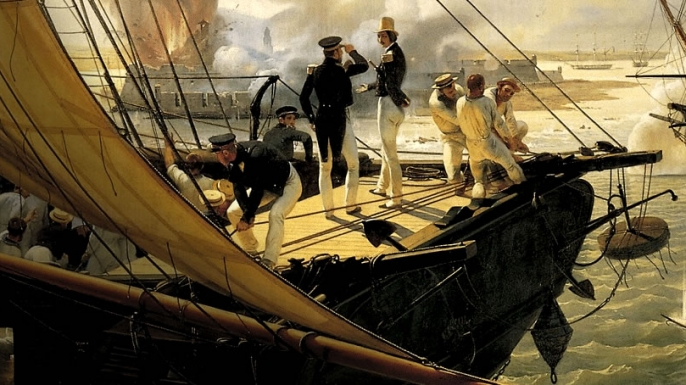Over the course of history, there have been countless wars, so many that it is often hard to keep track of things. While some stick out in the cultural imagination, there are some that are not quite as famous and keeping track of why they happened can be a very difficult process. These wars most definitely took place but they might have erupted for stranger reasons than you ever believed. Disputes don’t always come about for good reasons and by looking back at these bizarre historical wars, we can perhaps learn a great deal for the future.
- The Pastry War
Disputes come and disputes go and for the most part, we forget why we were even angry in the first place after a day or two. It wasn’t the case for French pastry chef Remontel, however. The chef was the victim of a ransacking in Mexico, where he had set up shop. After appealing to the Mexican government for compensation, however, Remontel’s requests fell on deaf ears, leading him to take the matter to France’s King, Louis Philippe I. The matter only spiralled further out of control and after Mexico refused to pay for the damages, the French navy seized the port city of Veracruz. With both sides declaring war, it looked like things would get really ugly and it was only after the intervention of Britain that Mexico agreed to pay 600,000 pesos for damages. That’s a lot of fuss for a little bread.
- The Football War
For some, football is really a matter of life and death. After losing their 1969 World Cup qualifier, El Salvador didn’t take the matter lightly, launching a full scale attack on neighboring Honduras. The game and following actions of the country had sparked widespread anger towards the people of Honduras and before long, a number of riots had broken out across the country. While the war itself only lasted for 100 hours, the sentiment was very much felt and with the deaths of thousands of people, this was not a war that was easily laughed off.
- The Great Emu War
Sometimes, the enemy comes to you from a place that is completely unexpected. Take the Great Emu War. After dealing with a widespread eruption of emus across their country, Australian soldiers took to the west to take matters into their own hands. After having destroyed acres of farmers’ land, the birds were target number one, with WWI veterans being charged with their removal. The birds put up a fight, however, and despite being faced with armies of weapons, they managed to organize themselves into groups to escape. In the end, the soldiers withdrew after a few hundred emu deaths were recorded. No humans were injured.
- The Stray Dog War
Wandering into forbidden territory is no small matter, especially when the territory is a subject of contention. In 1925, tensions between Greece and Bulgaria were so rife that there was a ban in place across the borders. Spotting a stray dog, however, a Greek soldier walked past the border and into Bulgaria, sparking a sudden firing match between both sides. The fighting continued even after a white flag was raised, only coming to an end after the League of Nations called for a ceasefire. In the end, fifty people had died over the matter.
- The Fight For Castle Itter
In a strange turn of events, American soldiers ended up fighting side by side with German soldiers against the Nazis during the Second World War. The magnificent Itter Castle in Austria had been integrated into the Nazi’s concentration camp program in 1943, and was subsequently filled with some of the most high profile French soldiers in the world. Hearing word of the French prisoners inside, American and German soldiers advanced upon the castle in a bid to rescue them. After a few hours of fighting, the Americans and Germans had victory over the Nazi captors, liberating the soldiers who had been kept inside the castle limits.






